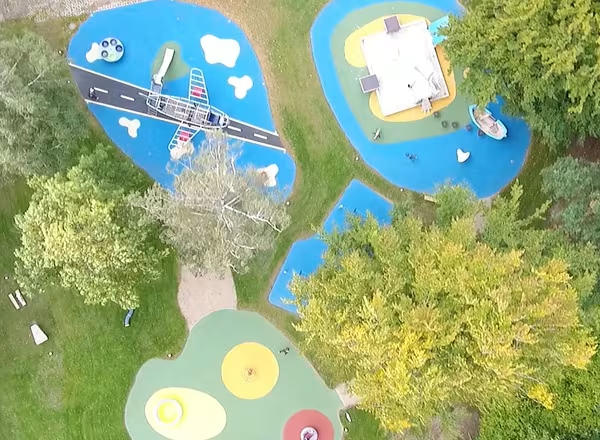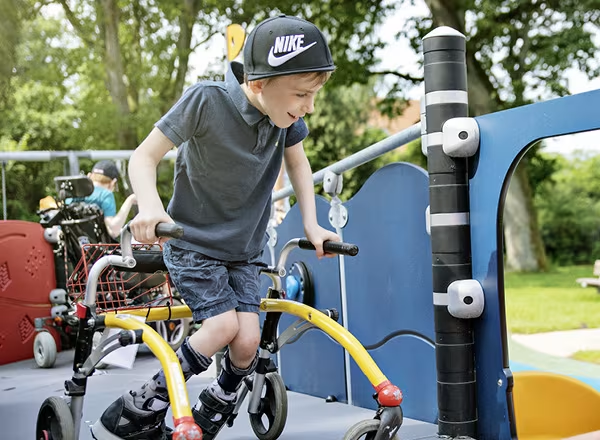Child Development and Play

The development factor
Play and growth are intertwined. Play is one of seven emotional systems of the human brain and on par with other human emotional instincts such as happiness, fear, and love. Children’s physical, social-emotional, cognitive and creative development is not only supported by play, it is developed through play. There is evidence that play - apart from being great fun - is fundamental for all areas of child development. The KOMPAN Play Institute constantly searches for new engaging ways to build play value in playgrounds and to support child development through play. Playground play and child development have roots in physical play, in fun rough-and-tumble play. But play motivation and great playgrounds also build on pretend play, dramatic play, explorative sand water play and many more. Different age groups have specific play preferences and needs. The KOMPAN Play Institute recognises age-appropriateness in the design of individual equipment and its placement.
Outdoor play: The key to increasing physical activity in early years settings
The World Health Organization recommends that all children and adolescents should participate in moderate to vigorous physical activity for a least 60 minutes a day. This study set out to examine the level of physical activity among 3 to 6-year-olds during their time spent in early years educational settings.
This study found that EYFS children who spent most of their educational time outdoors in a well-planned activity area had a 35% higher level of physical activity than children in the other EYFS classes in the study.
In order to positively influence and improve the physical activity level of children in the early years sector, free play in well-planned outdoor activity areas is key.
Video: How play helps to develop children

Energy expenditure on a KOMPAN school age playground
The Surgeon Generals Report on Physical Activity and Health Report suggest that everybody should burn 150 calories of energy per day in order to maintain a healthy body composition of bone, muscle, and fatty tissue. This energy balance is off for many children.
For this reason, KOMPAN's Play Institute and the University of Southern Denmark set out to research how many calories school aged children burn when they engage in 30 minutes of free play on KOMPAN play equipment.
This study shows that Year 4 children burn more than 150 calories through 30 minutes of playground play when using KOMPAN play equipment. In comparison, when participating in 30 minutes of freestyle playground play, school age children only burn around two thirds of the recommended 150 calories.
Play value: The influence of playground equipment
Key areas of childhood development, such as social, cognitive and language development, are not the usual center of attention in playground research. As a result, the KOMPAN Play Institute set out to investigate to which extent play structures with a wide variety of activity panels influence these important areas of childhood development.
Research from the KOMPAN Play Institute shows that positively impacts the development of reception age children. Play panels provide extra play value and can be used to advance the development of children’s social-emotional and cognitive development.
Read the findings of the KOMPAN Play Institute to know more about what kind of playground equipment educators and park planners should invest in for their particular user groups - and why.




